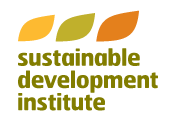
Monrovia, Liberia - 02/05/2025: The Sustainable Development Institute (SDI), along with three other African Civil Society Organizations from Cameroun, Ghana, and the Republic of Congo, in collaboration with Fern is requesting our respective governments to join us in calling on the European Commission (EC) to review its unilateral decision to terminate the Liberian Voluntary Partnership Agreement (VPAs). Last week, SDI travelled to Brussels and Paris to meet with European policy makers. The European Parliament and the European Council are the ones who have the decision-making power to terminate the Liberian VPA. However, following detailed discussions with Members of the European Parliament of multiple political groups (from the right, center and left), it became clear that they were either not informed or mis-informed about the European Commission’s decision to terminate the VPA. Similarly, we met with members of the Council (representatives from ministries of European Member States) who had not been adequately informed nor consulted. Given the importance of the VPA to address illegalities and deforestation in Liberia, the SDI urges the European Commission to revise its proposal to unilaterally terminate the VPA and replace it with a “Forest Partnership”, which is not Legally Binding and whose content and ambition are unclear and thus not subject of parliamentary control or other checks and balanced.
Instead, we urge the European Commission, European Parliament and European Council to strive for a model of coexistence between VPA and Forest Partnership that respects all stakeholders’ involvement in the Agreement processes. Additionally, there was no satisfying motivation presented by the EC in Brussels to opt for the replacement of the VPA by a Forest Partnership whereas the VPA and FP coexist in three other countries.
In Guyana, the Republic of Congo and Honduras the VPAs and Forest Partnerships are compatible, complementary and not mutually exclusive. In these countries, the Forest Partnership is a coordination tool which relies on effective implementation of the VPA to be successful. During our recent trip to Brussels and Paris to explore effective partnerships between EU and Central and West African Countries from January 27-30, 2025, the European Commission confirmed the relevance of the coexistence of the VPA and Forest Partnership model.
“We are convinced that the coexistence approach will foster dialogue among governments, CSOs and other stakeholders and will ensure that the objectives of the VPA are achieved – the VPA should be enhanced with a Forest Partnership, not replaced by it,” states Jonathan W. Yiah, Forest Governance Program Team Leader at the SDI. “This will allow the necessary adjustments and improvements to achieve an effective partnership with the EU,” he concluded.
The coexistence approach will lead to creative and sustainable solutions in upholding the VPA achievements and enhancing respect for forest governance. This approach will foster dialogue among governments, civil society, and industry stakeholders to ensure that the objectives of the VPA are met while allowing for necessary added value, adjustments and improvements to the Forest Partnership. The approach will lead to advanced results that maintain the truthfulness of the agreement while respecting the growing landscape of forest governance.
Like other African countries, Liberia’s VPA continues to play a crucial role in promoting a sustainable path to improving Liberia’s forest governance including stakeholders’ participation, transparency and combating illegal logging. Terminating the VPA will significantly derail the progress made and revert Liberia to the very ugly past wherein the forest exploitation did not benefit all Liberians. We can assure you that cancelling the legally binding agreement will not only affect the progress made collectively, but it will have a disastrous impact on the protection of the environment, our economy, and the communities that heavily depend on resources from these forests for their livelihoods.
Jonathan Yiah also said “We want to urge the EC to invest in multi-stakeholders’ dialogues collectively aimed at finding solutions on how the VPA can be further strengthened through a Forest Partnership instead of being terminated. Let’s remember that collaborative solutions are crucial. We believe that sustaining the VPA and encouraging a coexistence approach is the best way forward at this stage.”
About SDI:
The Sustainable Development Institute was founded in 2002. It is the Liberian charter of Friends of the Earth (FoE), the world's largest grassroots environmental network. SDI is also an alliance member of the Green Livelihoods Alliance (GLA), representing the African continent. SDI received the prestigious Goldman Environmental Prize for outstanding environmental achievements in Africa in 2006.
SDI works to transform decision-making processes of natural resource management so the benefits are shared equally. SDI's work aims to create space for the participation of local communities in decision making processes on natural resources. We work to support and enhance their contributions to those processes and strengthen mechanisms that will ensure that communities receive a fair share of the benefits derived from natural resource exploitation.
About Fern:
Fern is a European nongovernmental organization working to achieve environmental and social justice focus on forests and forest peoples’ rights in the policies and practices of the European Union.
Signed:
Media & Communications Unit, SDI
